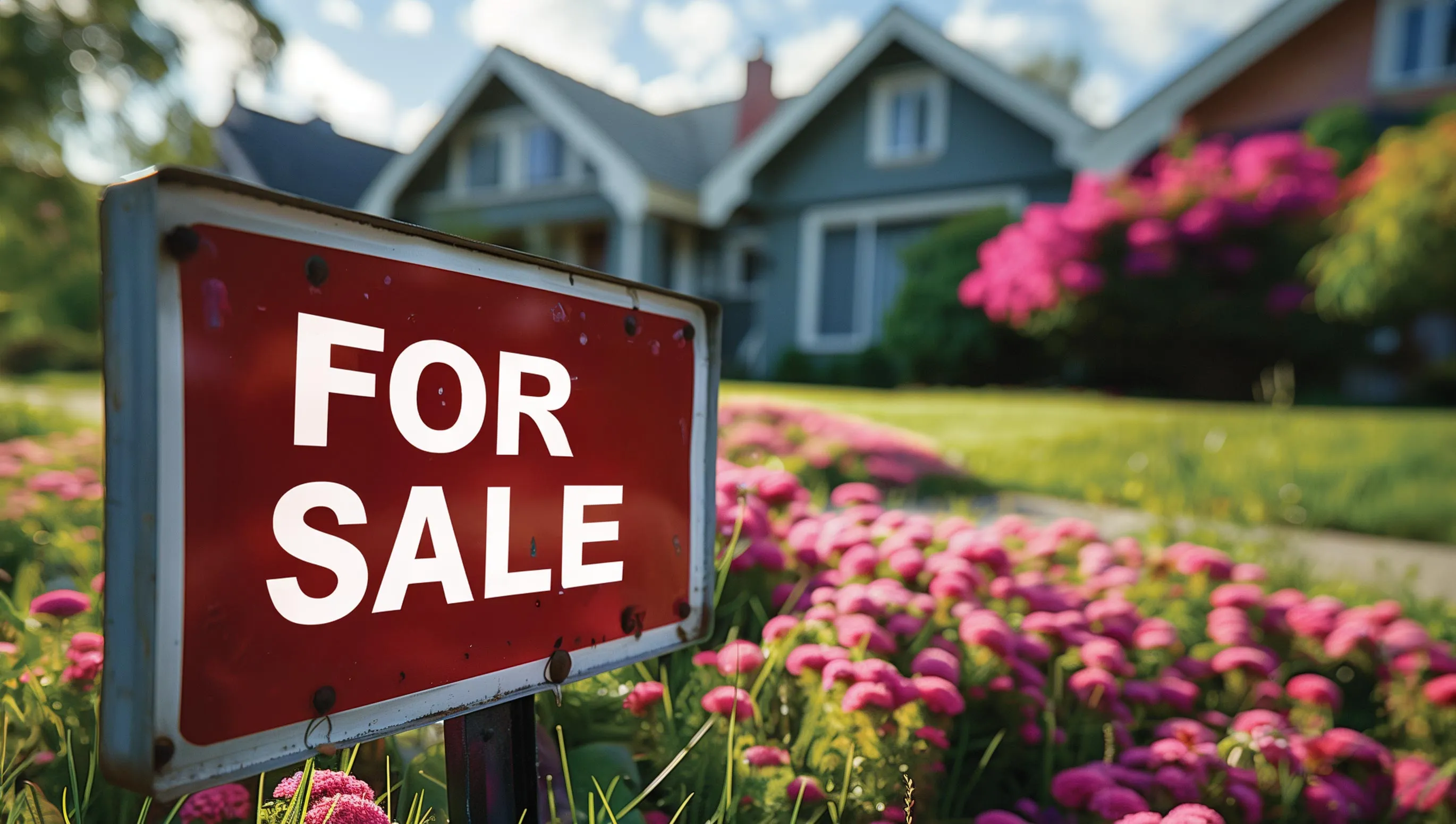Welcome to "DIY home selling: your guide to selling without an estate agent"! Today, with DIY (Do It Yourself) becoming increasingly popular, many homeowners also want to take the sale of their home into their own hands. Selling without an estate agent not only saves you money, but also gives you full control over the selling process. However, the path can present some challenges and stumbling blocks if you don't know where to start.
In this guide, we'll take you through the various steps of the house selling process. From valuing your home to creating an appealing listing and negotiating with potential buyers, we'll cover the most important steps. With practical tips, checklists and expert advice, you'll be well equipped to sell your home successfully and stress-free. Get ready to take the reins and master the house sale your way!
Table of contents
Understanding the market and pricing

When selling your home without an estate agent, it is crucial to have a deep understanding of the current real estate market and to set the right price for your home. Informed pricing not only attracts the right buyers, but also ensures you get the maximum value out of your property sale. Here are steps and tips on how to proceed with market analysis and pricing.
Develop an understanding of the market: First, you should thoroughly research the local real estate market. Look at the sale prices of comparable homes in your neighborhood. Pay attention to factors such as the size, condition, location and features of the houses. Online platforms, real estate portals and local real estate advertisements can give you an overview of the market. The development of supply and demand in your region should also be taken into account, as this has an influence on sales prices.
Consider a professional valuation: Even if you are selling without an estate agent, it can be useful to have a professional property valuation carried out. A valuer can give you an objective assessment of the value of your home, which will help you determine the price.
Use comparables (comps): So-called "comparables" or "comps" are similar, recently sold properties in your area. By comparing your home to these comps, you can determine a realistic price range. Make sure that the comparables have similar features to your home. This is because the price of your home is not determined by the structural value, but the market price, as the value someone is willing to pay for it.
Consider the time of the market: Home prices can fluctuate depending on the time of year and economic conditions. Certain times of the year may be more favorable for selling than others. Find out about trends and forecasts for the real estate market to choose the best time to sell. Even if you know that, for example, several older residents in your neighborhood will soon be moving into retirement homes and houses will become vacant as a result, it is clear that you should advertise your house before them. The more comparable houses are offered at the same time, the less scarce the supply and the lower the expected house price.
Flexibility and realism: Be prepared to adjust your price if the market changes or if initial reactions from potential buyers indicate that your home is over- or undervalued. A realistic and market-driven price is the key to a successful sale.
Put emotions aside: It's important not to let emotional attachments to your home factor into your pricing. The market value of your home is based on facts and figures, not personal memories or feelings.
Strategic pricing with room to negotiate: A common tactic when selling a home is to deliberately price your home around 10% above market or desired value. This strategy aims to create negotiating leverage, which allows buyers to negotiate and ultimately feel like they've made a good deal if they can reduce the price by that percentage. From a psychological perspective, buyers feel more satisfied when they believe they have achieved a price reduction through negotiation.
This method has the added benefit that as a seller you may achieve a higher final price than you originally expected. In a strong seller's market, or if your home is particularly desirable, someone may even be willing to pay the full starting price, which would of course be an ideal outcome for you. Even if you adjust the price, this may still leave you with a higher sale price than if you were too cautious.
However, caution is advised, as a starting price that is too high can put off potential buyers or cause your home to stay on the market longer, which in turn can lead to a negative perception. The trick is to choose a price that is high enough to allow room for negotiation, but not so high that it seems unrealistic or scares buyers away from the outset. Ultimately, it's a balance based on market knowledge, the value of your home and your selling strategy.
By following these steps carefully, you'll lay a solid foundation for the successful sale of your home. A well-thought-out pricing strategy not only reflects the true value of your home, but also maximizes your chances of a quick and profitable sale.
Legal aspects and preparation when selling a house without an estate agent
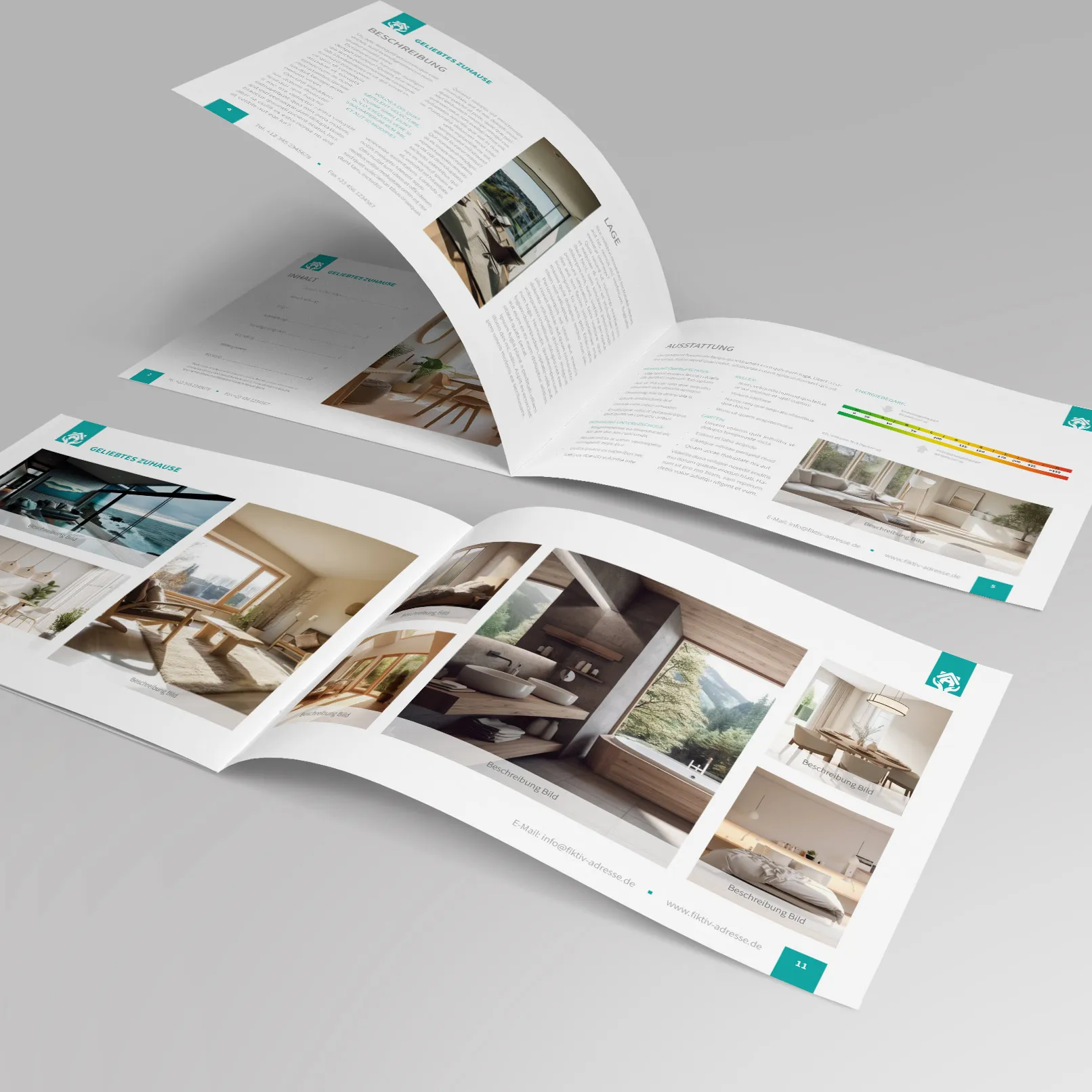
When selling a house without an estate agent, it is crucial to deal with the legal aspects and prepare the house adequately. This step is not only important for legal protection, but also to gain the trust of potential buyers and speed up the sales process.
Collect legal documents and records: Make sure that all important documents are complete and ready to hand. This includes title deeds, land register extracts, building plans, energy performance certificate, current utility bills and, if required, minutes of owners' meetings. The exact list may vary depending on the country and region, so it is advisable to obtain detailed information in advance.
- Legal requirements and disclosure obligations: Find out about the legal requirements and disclosure obligations in your region. In many cases, certain information about the condition and possible defects of the house must be disclosed. Failure to do so can lead to legal consequences.
- Preparation of the house: Thorough preparation of the house can have a significant impact on the selling price. Repairs, renovations and home staging can increase the appeal of your home. Even small improvements such as a fresh coat of paint or garden maintenance can make a big difference.
- Energy performance certificate: The energy performance certificate is an essential document that is required by law in many countries. It provides information about the energy efficiency of your home and must be shown to potential buyers during viewings.
- Professional advice: Even without an estate agent, it can be advisable to seek expert advice. Lawyers or notaries who specialize in real estate law can provide valuable support to ensure that all legal aspects are handled correctly.
- Transparent communication: Be honest and transparent in your communication with potential buyers. Openness about all relevant information builds trust and can minimize legal risks. Buyers often want to know why someone is selling. Have the owners divorced? That wouldn't be a problem for the home buyer. Or are there problems with neighbors? That could put someone off buying. Provide prospective buyers with a reason that is both valid and will encourage them to buy a house.
By paying careful attention to these aspects, you ensure that the process of selling your home without an estate agent is not only efficient, but also legally secure, minimizing potential risks and maximizing the chances of a successful sale.
Optimize the presentation of your home: Tips for home preparation and photos
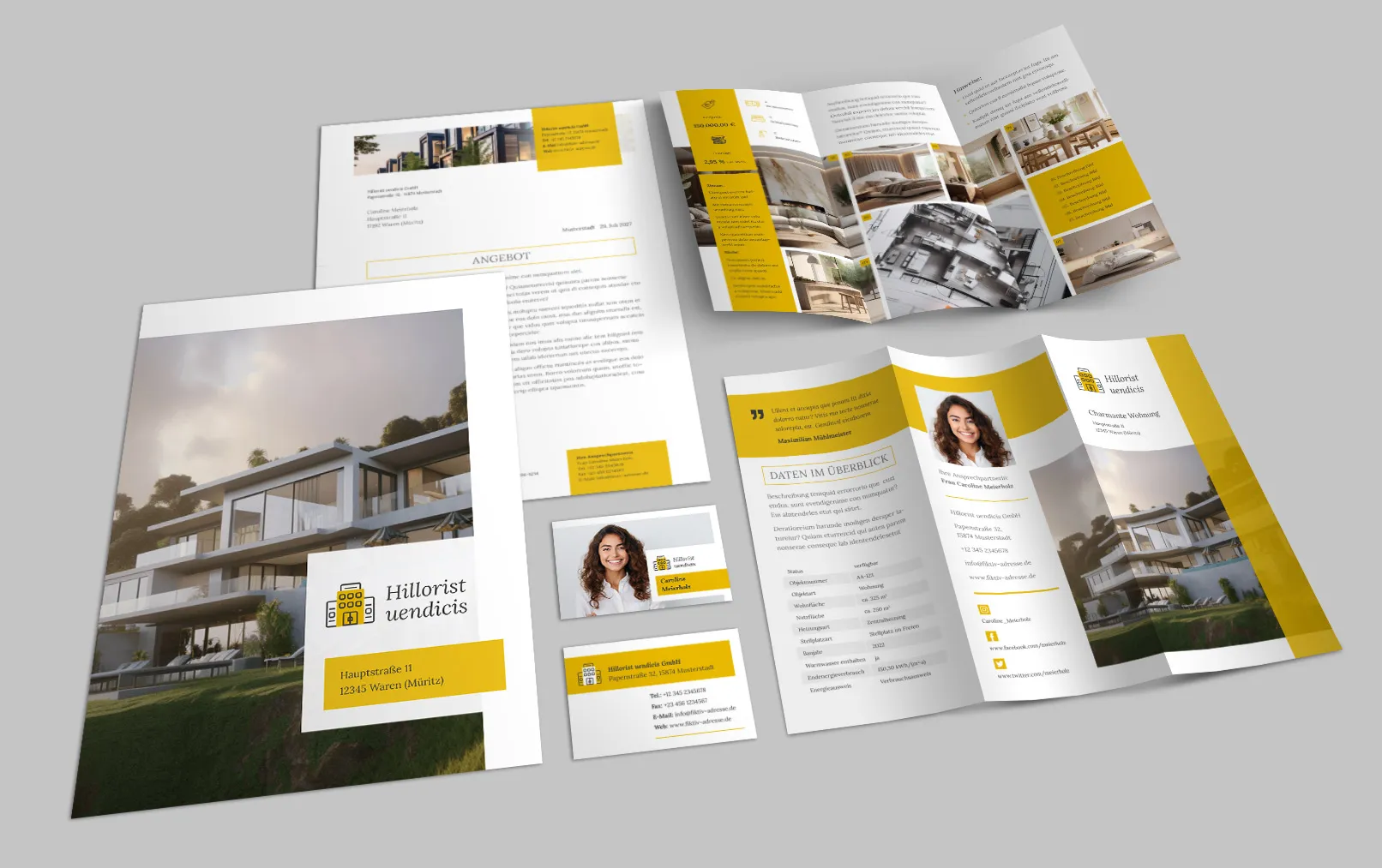
A convincing presentation of your home is crucial to attract the interest of potential buyers and promote a successful sale. Here are some essential steps and tips on how to prepare your home and present it with high-quality photos.
Home staging: Home staging refers to the professional preparation of your home for sale. The aim is to make the property as appealing as possible in order to present the benefits of the home to potential buyers and allow them to imagine their life in these rooms. This can range from rearranging the furniture to small renovations. Investing in small cosmetic touch ups makes perfect sense. For example, you'll spend another 5,000 euros on improvements, but you can achieve a 20,000 euro higher selling price. Sounds like a great investment.
Tidy up and depersonalize: Potential buyers should feel at home as soon as they enter the house. Personal items such as family photos or individual decorations should therefore be reduced. A tidy and neutrally decorated home allows buyers to see themselves in the rooms.
Repairs and small improvements: Small repairs can make a big difference. Touch-ups on walls, faulty light switches or squeaky doors should be fixed before viewings. A well-maintained house leaves a positive impression. See also Home Staging to see how useful these investments are for you.
Optimize lighting conditions: Good lighting is crucial to the presentation of your home. Rooms should be bright and inviting. Open the curtains, clean the windows and switch on lights to show the rooms in the best light.
Always take professional photos in daylight: Photos are often the first point of contact for potential buyers. Professional, high-quality images are therefore essential. The best time to take photos is in daylight, when the natural light illuminates the rooms perfectly. Make sure that the photos show the rooms as spacious and inviting. If there are dark corners in the background of the photos, illuminate them with spotlights.
Enhance the outside area: First impressions count, and this includes the outside area of your home. Make sure that the garden is well-kept, the driveway is clean and the façade is in good condition. It even makes a difference whether the lawn is well-kept or everything looks neglected. A car should also be cleaned thoroughly before it is sold. By the way cars: When potential buyers come to view your car, it should also be clean. A new Q7 in the driveway looks better than an old VW Golf. You can also use this co-branding effect, even if it is clear that very few people drive a Q7. Just think about which means positively support co-branding for your house.
By carefully preparing and presenting your home, you put it in the best light and maximize the chances of prospective buyers contacting you. Good preparation and professional photos can make all the difference. So don't underestimate it.
Using videos to showcase your home when selling real estate
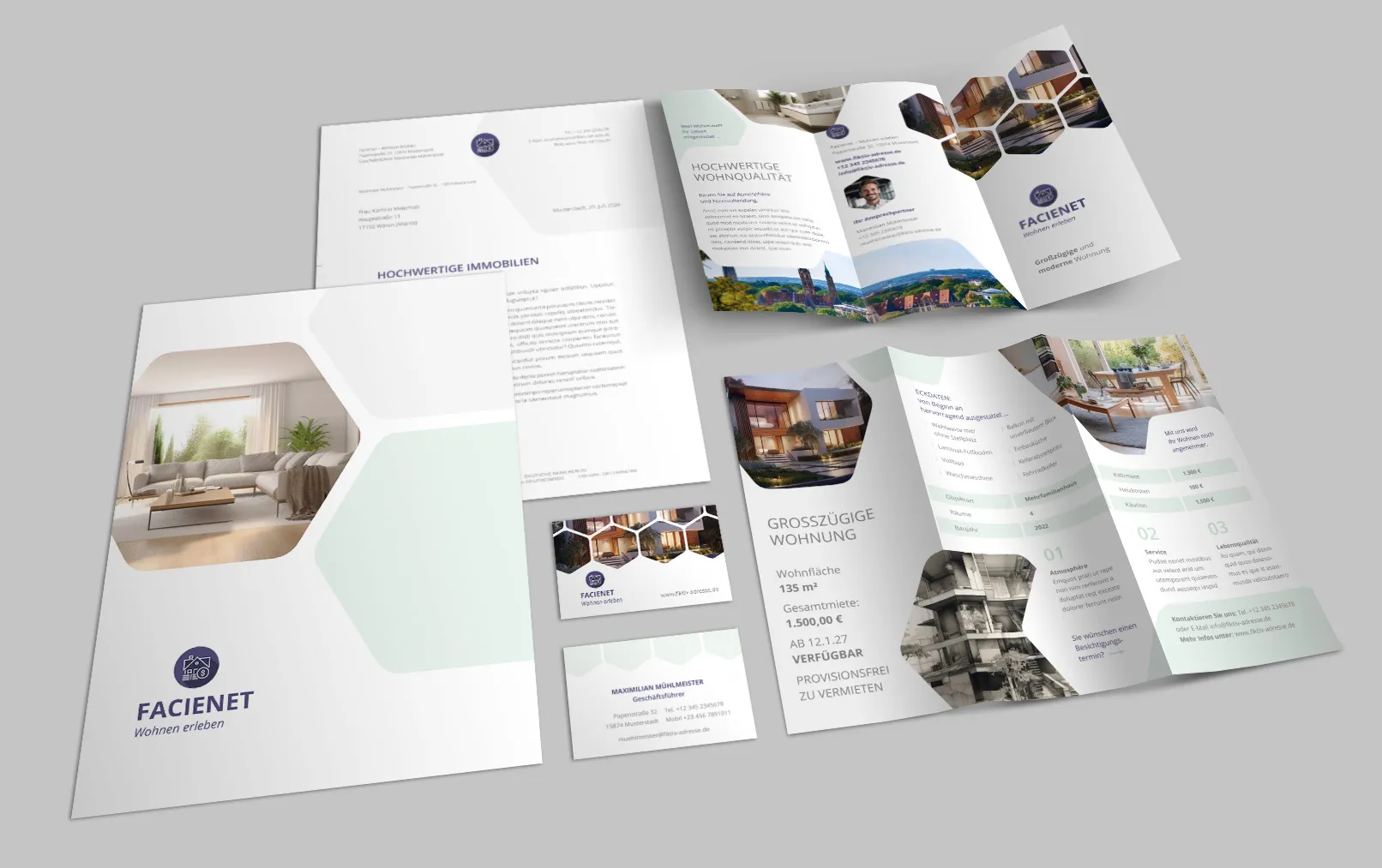
Have you ever thought about using videos to showcase properties? You can use them to give potential buyers a comprehensive and dynamic impression of your home. A self-produced video as a tour of your home can convey an impression of the actual experience in the house that is not possible with photos or text alone. Here are some key aspects and tips on how to use video effectively to showcase your home.
Storytelling through video: A video allows you to tell a story and take viewers on a visual journey through your home. Use this opportunity to highlight the highlights and special features of your home. Show not only the rooms, but also how they are connected to each other to convey a sense of space and atmosphere.
Professional quality: Even though smartphones can now record high-quality videos, for very high-end properties you may want to consider professional equipment or a professional service provider for the best possible result. The higher the quality of the house, the more likely it is that professional equipment will be recommended. Good lighting, stable shots and clear sound quality are crucial to creating a professional and appealing video.
Attention to detail: Use video to emphasize details that may not show up in photos. Whether it's the quality of the building materials, special fixtures or the spaciousness of the garden, a video can show these elements in action, making them more tangible for potential buyers. But also draw attention to negative aspects such as the need for repairs. Everything that will be visible during a viewing at the latest should be shown in the video.
Emotional impression: A video can convey emotions in a way that static images cannot. The movement through a sun-drenched room or the sound of birds in the garden can appeal to potential buyers emotionally and create a deeper connection to the property.
Integration into marketing channels: Once created, the video can be used in a variety of ways. Integrate it into your online listing, share it on social media or send it directly to interested buyers. Videos are particularly shareable and can help to increase your reach.
Virtual viewings: In times when in-person viewings may not be possible or desired, a video offers an excellent alternative for virtual viewings. Prospective buyers can get a comprehensive impression of the property without being physically present.
Using video to showcase your home can be a crucial factor in encouraging buyer interest and giving them a full understanding and feel for the property.
A video allows potential buyers to explore your home virtually, avoiding unnecessary viewings if certain aspects don't meet their expectations. This saves you time by only having seriously interested buyers come for viewings who are already aware of the pros and cons. From my own experience, I can confirm the effectiveness of videos in the sales process. My brother used his Pixel smartphone in portrait format to sell his wife's house a few years ago and stabilized and edited it with simple video editing software. The result was a 3-minute video that every prospective buyer received. This minimized the house viewings to just two prospective buyers until it was sold.
Creating an appealing advertisement for the house sale
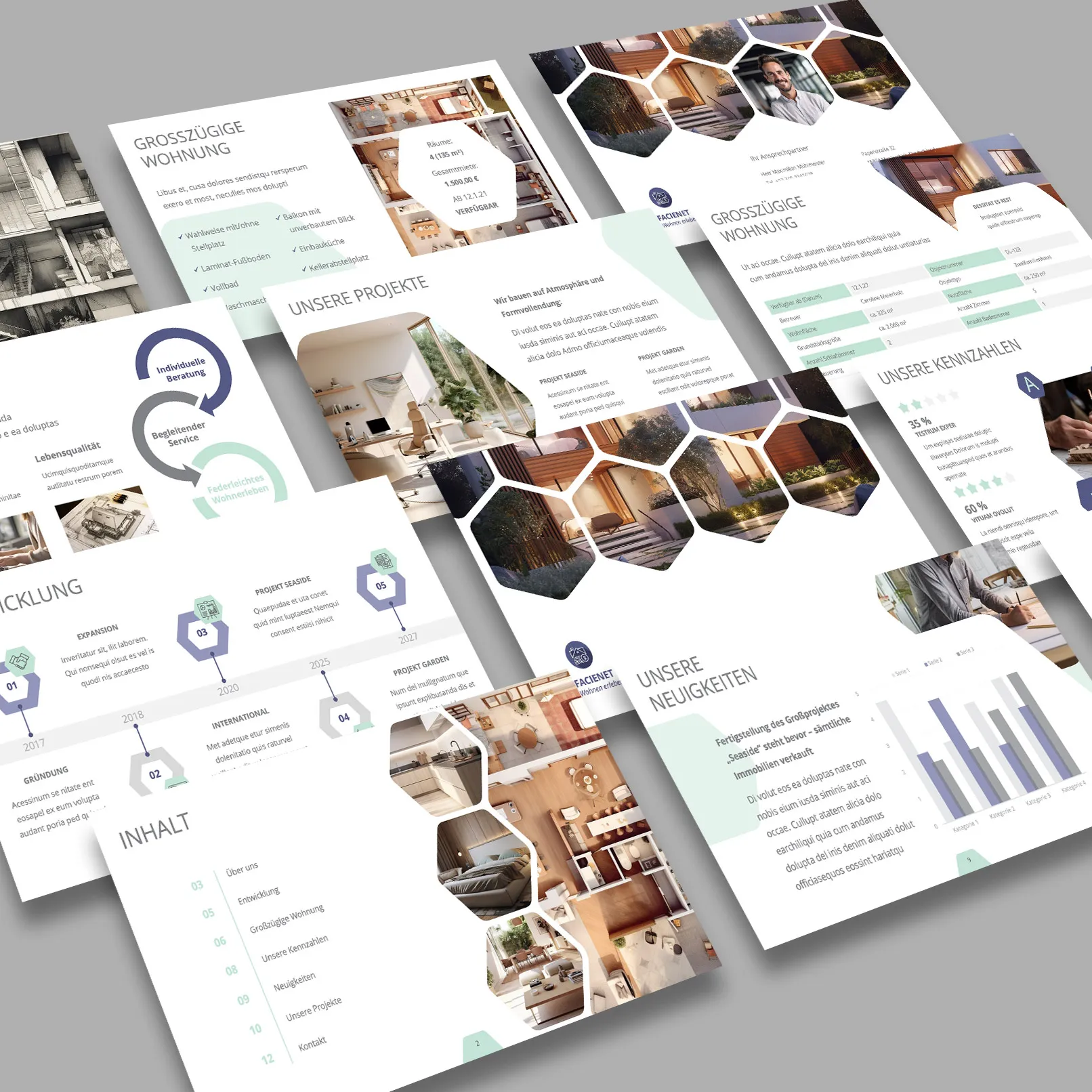
Creating an appealing listing is crucial to attract the attention of potential buyers and generate interest in your home. A well-designed listing not only conveys the most important information, but also tells an inviting story of your home. You not only need a text advertisement with pictures in the online portals, but also a supplementary real estate exposé that you send with your first reply or integrate into your online advertisement as a download option.
Convincing headline: The headline is the first thing potential buyers see. It should be eye-catching and descriptive, emphasizing the features of your home. Use concise wording that arouses curiosity and encourages people to read on.
Detailed and precise description: The description should be detailed and precise to give the potential buyer a clear picture of your home. Emphasize special features and benefits, such as a newly renovated kitchen area, a well-kept garden or an excellent location. Avoid general phrases and focus on specific details that set your home apart from others.
High quality photos: As mentioned above, high-quality photos are essential to increase interest in your listing. Make sure the images show your home at its best, are well-lit and make the rooms look spacious and inviting. A good mix of interior and exterior shots will give a comprehensive impression of the property. Do you know someone who has a drone? Then have drone pictures taken of the property and house.
Clear structure: Structure the advertisement so that it is easy to read and understand. Use paragraphs, headings and bullet points to highlight different areas and features. This makes it easier for potential buyers to grasp the most important information. Avoid overly long blocks of text without highlighting in bold.
Contact information and call-to-action: Don't forget to include clear contact information and a call-to-action. Encourage readers to request a detailed exposé and get in touch for more information or to arrange a viewing. A direct invitation can motivate interested parties to take the next step.
Emotional appeal: Try to create an emotional connection with the reader by describing what makes living in this home special. Whether it's the warm sunsets on the terrace or the cozy fireplace in winter - little stories and personal insights can make the listing more lively and appealing. It is better to focus on things that the prospective buyer also benefits from: the peace and quiet, the nearby forest, the local community, the good transport links. It's better not to mention that you had a home birth in your property.
Use professional real estate exposé templates: To give your listing an extra professional touch and provide potential buyers with an even more detailed picture of your home, you can use our professionally designed real estate exposé templates. These templates allow you to create an appealing and clear PDF file that summarizes all important information and visual impressions in a coherent format. You'll also position yourself to be professional, accurate and high quality in all parts of your life. Your car is clean at the viewing, your clothes are neat, your exposé is professional: prospective buyers will think that if you present yourself like this, you've taken good care of your home throughout your life.
With our templates, you can create an exclusive exposé that not only contains all the relevant details and appealing photos of your home, but is also presented in a stylish and easy-to-understand layout. This conveys professionalism and care to prospective buyers and can boost confidence in the quality of your offer.
You can send the exposé digitally to interested buyers so that they can take their time to look at all the details. Alternatively, you can print the exposé in high quality and hand it over during viewings. This can not only serve as useful information material, but also as a kind of souvenir that potential buyers can take home with them after the viewing.
Using our exposé templates not only makes it easier for you to create a professional sales document, but also increases the attractiveness and information value of your offer. It's an extra step that can show how serious and committed you are to selling your home and provides potential buyers with another layer of quality information.
By carefully crafting an appealing listing, you can increase the likelihood that potential buyers will take an interest in your home and take the next step towards buying it. I myself have only ever received poor exposés when looking for a house, which usually never did justice to the beautiful house. You'll do better than that. And the professional exposé will also reflect positively on you and your property!
Optimizing the presentation of your home: pay attention to the sensory experience
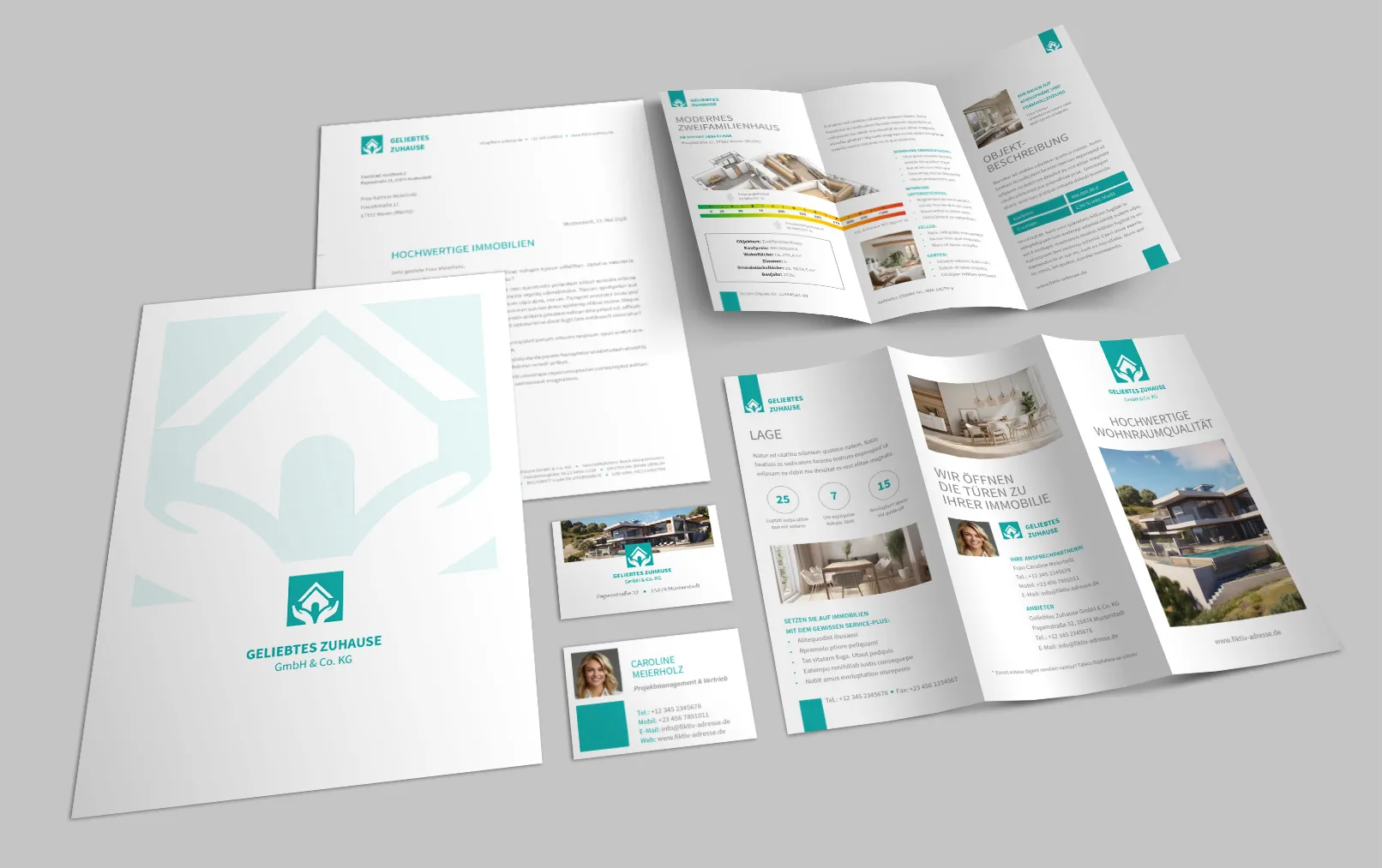
In addition to the visual presentation, the atmosphere created by scents in your home plays a crucial role in giving potential buyers a welcoming and positive feeling. Here are some additional tips on how you can use scents to enhance the appeal of your home.
Importance of fresh air: Make sure your home is well ventilated. Before viewings, you should air all rooms thoroughly to remove stale air. In summer, you can leave the windows open a crack to allow a constant supply of fresh air without the house cooling down.
Use pleasant fragrances: Subtle and pleasant fragrances can significantly improve the mood in your home. Using orange scented bottles can create a fresh and inviting atmosphere. However, make sure that the scent is only subtle and not too intense, otherwise it can be off-putting. Natural and subtle fragrances are best here. You may also be familiar with the phenomenon when you pick up your car from the garage: it often smells quite pleasant in the interior because professional garages leave a small splash of fragrance in addition to cleaning.
Cleaning with scented products: Another way to bring pleasant smells into your home is to use nice smelling cleaning products. When mopping the floor just before viewings, use a cleaning product with a fresh and subtle scent. This gives the impression of cleanliness and care.
Avoid negative odors: Make sure there are no unpleasant odors in your home. Kitchen odors, pet odors or smoke should be removed before viewings. Negative odors can quickly put off potential buyers and affect the overall impression.
Favor naturalness: While artificial fragrances should be avoided as they can be too strong or overpowering, natural scents such as freshly cut Blum or the aroma of baked bread or cookies are often welcome. However, they should be used sparingly to avoid giving the impression that you are trying to hide or mask something.
By following these tips and creating a welcoming atmosphere through the judicious use of scents, you can appeal to visitors' senses and leave a positive and lasting impression.
Viewings and negotiations: Key elements for the successful sale of your home without an estate agent

Viewings and negotiations are two crucial phases in the house selling process. This is where it is often decided whether a sale will go through and on what terms. Handling these elements well can make the difference between a successful completion and a missed deal.
Preparation for viewings: Preparing for viewings is essential to making a positive first impression. Make sure your home is clean, tidy and well lit. Minor repairs should be carried out and personal belongings minimized to give potential buyers the opportunity to imagine the house as their own. Flexibility in scheduling viewings also increases the chance of attracting more prospective buyers.
Conducting viewings: During viewings, it's important to create a welcoming and friendly atmosphere. Be ready to answer questions and provide information about the house, the neighborhood and similar aspects. At the same time, it is important to give prospective buyers space to take in the house.
Willingness to negotiate: After the viewing often come the negotiations. Be prepared for different negotiation strategies and be clear beforehand what your lowest acceptable price is. Flexibility can be helpful, but you should also know your limits so as not to sell below value. The more professional your listing and exposé is, the more potential buyers you will attract. This will give you confidence that you don't have to sell at the cheapest price.
Maintain objectivity: It is important to remain objective during negotiations and not be overwhelmed by emotions. Constructive discussions and a willingness to compromise can lead to an agreement that is satisfactory for both parties. Compromises can include which furniture or garden tools will be taken over, when the move-in date is and so on.
Consider professional help: Even if you want to sell your home without an agent, it can be helpful during the negotiation phase to seek legal advice or the help of a real estate expert to ensure that all aspects are handled fairly and correctly. This is particularly advisable if there are questions that are not entirely clear for you to answer.
Finalizing the sale: Once an agreement has been reached, it is important to put all agreed terms in writing and take the necessary legal steps to finalize the sale. Clear communication and adherence to all agreements are crucial.
Working with the notary when selling a property

The notary's role in the sale of a property is crucial to ensure the legal validity of the sale and to protect all parties. The notary performs the following important tasks:
- Drafting the contract: The notary draws up the purchase contract. This is individually tailored to the sale in question and takes all legal requirements into account. The notary ensures that the contract is fair, balanced and complies with legal requirements.
- Checking the documents: The notary checks the ownership structure and other important documents such as land register extracts to ensure that there are no legal obstacles to the sale.
- Advice: The notary informs the seller and buyer about their rights and obligations. This neutral advice helps both parties to fully understand the sales process and the contractual terms.
- Purchase price settlement: By setting up a notary escrow account or trust account, the notary ensures that the purchase price is settled securely. This ensures that the seller receives the money and the buyer is only entered in the land register as the new owner after payment.
- Notarization: The notarization of the purchase contract by the notary is a crucial step in making the sale legally binding. The notary confirms the identity of the contracting parties, reads out the contract and supervises the signatures.
- Land register entry: Once the contract has been notarized and the purchase price paid, the notary takes care of registering the new owner in the land register. This is the final step that officially makes the buyer the new owner.
Beware of house-buying nomads
Please be careful not to hand over the keys to your home until full payment has been received. There is currently a trend known as house-buying nomads. These people pretend to be buyers and receive the keys from you with the promise to transfer the purchase price directly. But you can be waiting a long time for the transfer. To protect yourself from such fraud, make sure that all financial transactions are completed and confirmed before you hand over the keys.
With careful preparation, professionalism in execution and skill in negotiation, you can successfully complete the process of selling your home and get a fair price for your property.
Working with a notary provides peace of mind for both the seller and the buyer, ensuring that all legal aspects of the property sale are handled correctly and professionally.
